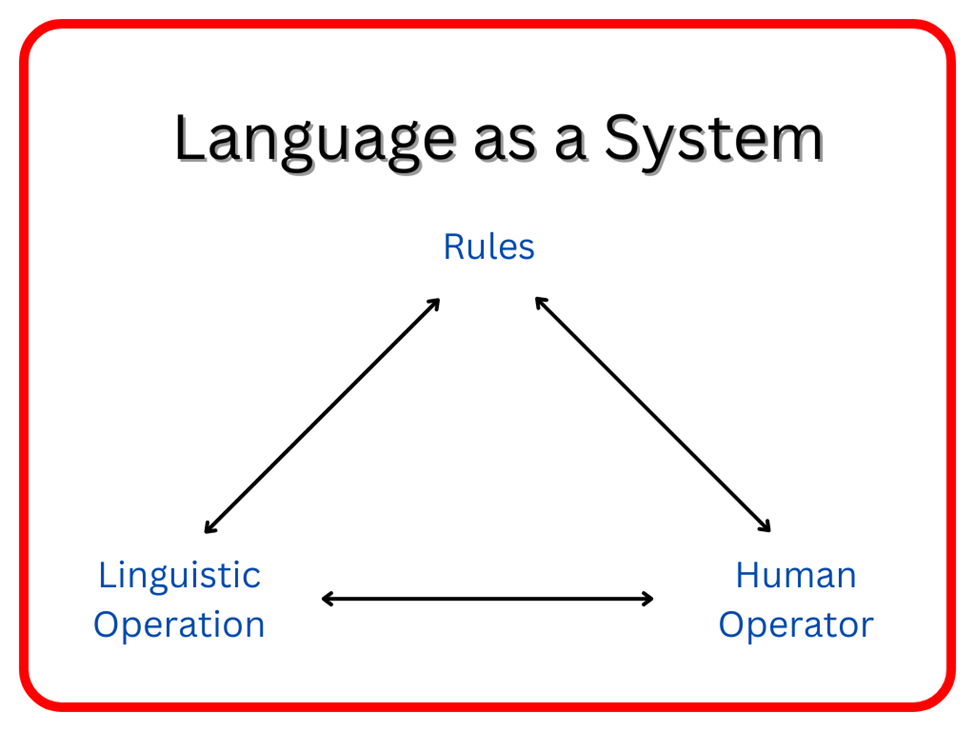1. Human language is more than the science of linguistics.
2. Language is dependent on the mind and cannot be separated from its influences
3. Therefore, language as a set must include both linguistics and the complex of human experience.
4. Part of human experience is driven by unconscious forces, which may appear as irrational so that it serves as a wildcard and therefore is a source of distortion.
5. Another main source of distortion is the disconnect between relying on the finite tool of language to describe the infinite experience.
6. To manage distortion, TSM understands language as a system and applies a set of rules as its mission statement to ensure language produces information that is both timely and accurate.
Linguistics is the science of language that looks at language from various different angles. While the field of linguistics is undoubtedly exhaustive, it remains focused on language and the human mind as standalone entities in relation to each other.
Linguistics looks at every aspect of language except:
1) the influence/distortion generated by the unconscious and
2) the finite/infinite conflict inherent to the relationship between language and experience.
All of which begs the question, is there more to language than linguistics? For instance, does language exist outside of human thought? Can we measure language like we weigh a rock or measure a cup of water? Noam Chomsky is famous for observing the structural similarity between language and the human mind but he did so from within the limits of linguistics.
The Steele Method observes that you cannot separate the human operator of language from the linguistic operation of language. The act of operating language is framed in large part by the unconscious. If the goal of language is to produce accurate and timely information based on physical evidence, then framing by a seemingly irrational unconscious is a serious source of distortion.
Another main source of distortion comes from when we try to use language to capture a moving target driven by change. Language allows us to label our thoughts and feelings but we experience the infinite outside of language so that we are left with trying to use a finite tool to label infinite experience. This finite/infinite disconnect is a serious source of distortion.
To manage distortion, TSM looks at language as a set, which includes rules in support of the mission statement to ensure language produces information that is both timely and accurate.


